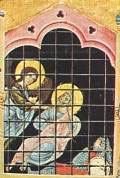|
 |
Program: Free the Prisoners |
 |
|
|
|
Africa’s Prisons
The poverty afflicting large areas of the continent of Africa makes its presence felt most keenly in its prisons, in the harsh conditions of life for those detained inside them.
These are for the most part young persons (under 25 years of age) originating from the cities, with some from rural areas, too. Life in prisons is especially hard and fraught: loss of personal liberty is aggravated first and foremost by serious shortcomings in conditions of hygiene and medical care. Inmates sleep on the ground, with the more fortunate having mats to lie on; sanitary facilities are few and run down, food is insufficient and those whose families live too far away or are too poor to bring them extra rations simply suffer from malnutrition. Many detainees do not have a change of clothes and wear the same garments for months. There is no linen and soap is a luxury item, arriving only two or three times a year. Most of the prisons are overcrowded, lacking in living space. In Madagascar, the capital city’s jail was built to house 800 inmates: it currently accommodates 3,000. In Abidjan, in the Cote d’Ivoire, the “Maison d’Arret et de Correction” for 1,500 inmates has more than 4,500.
|
|
|

Often the greatest challenge facing a detainee is that of obtaining release from prison even when it should be due. The law in many African nations does not in fact impose any limits on periods spent on remand, to which must be added the fact that many cases simply fail to come to trial, so no specified sentence is set. Most people are imprisoned for “minimal” offences: petty acts of theft like stealing an apple, a bar of soap or a couple of hens. For these minor offences they often serve very long sentences. Sometimes, when the detainee – who will be poor, because it is the poor who commit this type of crime – is unable to pay for legal expenses or cannot pay off a fine, they run the risk of being left in goal for many years.
Many African countries, in fact, employ dual punishments for crime comprising a custodial and a financial part. To qualify for release from prison, the detainee must pay a sum of money which covers reimbursement of legal expenses. Those who cannot pay this sum remain in prison for longer.
It is very easy to contract a life-threatening illness in prison. Bronchopneumonia, malaria, tuberculosis, AIDS, cholera and other intestinal diseases affect people already worn by poverty and weakened still further by incarceration. The infirmaries, should they be in open, lack medicine and opportunities for therapy. In some instances, the chances of contracting a fatal illness are very high.
…and so custodial sentences are sometimes equivalent to unofficial sentences of death.
|
|
"… he has appointed me to bring glad tidings to the poor. He has sent me to proclaim liberty to captives and recovery of sight to the blind: to let the oppressed go free, and to proclaim a year acceptable to the Lord"
(Luke 4,18)
|
|
 The Community of Sant’Egidio and Service in Africa’s Prisons The Community of Sant’Egidio and Service in Africa’s Prisons
The Community of Sant’Egidio is present in the prisons of 15 African countries thanks to the efforts of local communities. This is a grass-roots presence covering small rural district jails as well as the larger penitentiary centers, some of which hold inmates on death row. The service aims first of all at improving the lot of the inmates and promoting and guaranteeing respect for human rights, including the fundamental ones of the right to life and the right to human dignity: of being able to eat, wash, dress and meet one’s basic hygienic needs.
In addition, basic education and professional training courses are organized to help avoid a later return to jail.
The Community also organizes primary school courses aimed especially at imprisoned minors – the growth in whose numbers is a cause for concern – giving them a chance to carry on with their education throughout their period of detention and obtain school graduation. These youngsters are involved in the activities of the Peace Schools, the Community of Sant’Egidio’s centers for minors, and many of them, once out of prison, benefit, thanks to the Child Sponsorships from Afar, from study grants enabling them to continue with their studies at boarding schools.
 The Community’s friendship is articulated through: The Community’s friendship is articulated through:
|
|
|
|
|
|